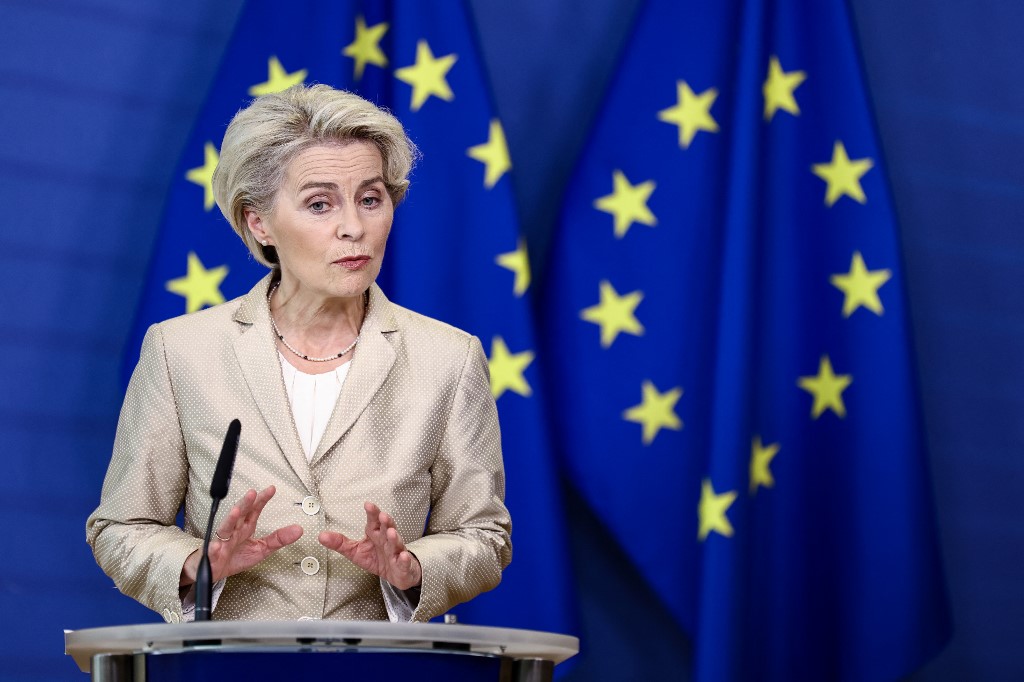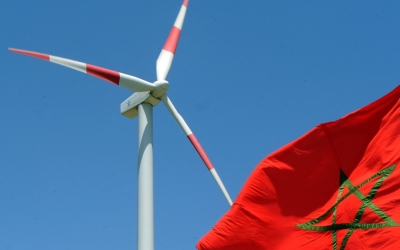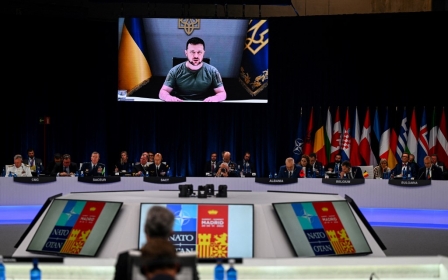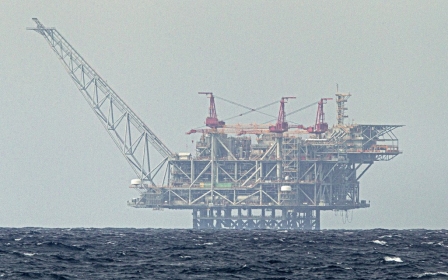Green hydrogen: The EU's new resource grab in North Africa
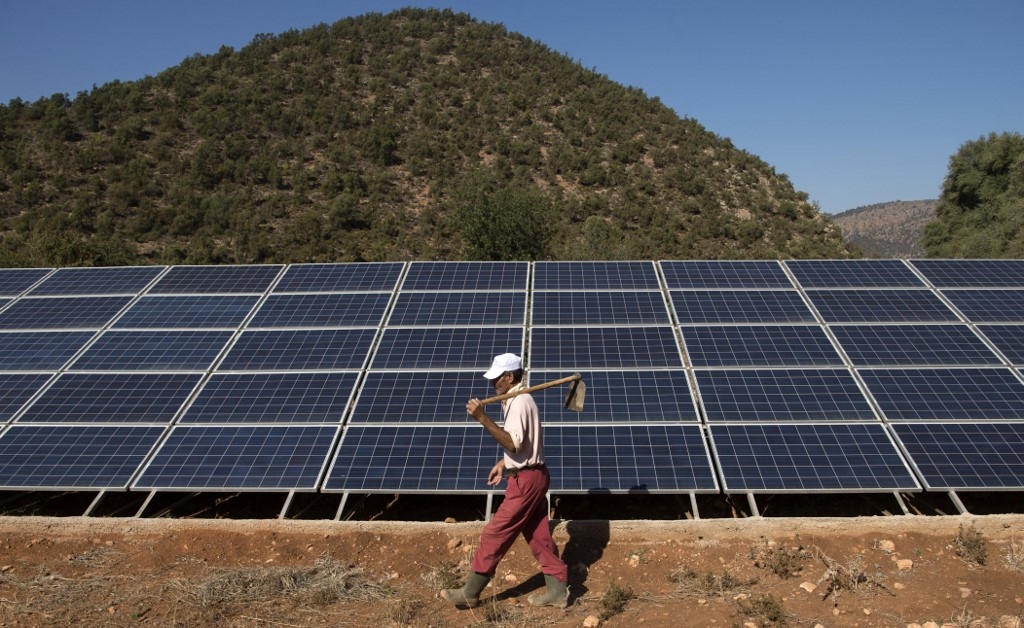
Following the invasion of Ukraine, the European Union intends to end its dependence on Russian gas - in part by replacing it with hydrogen. According to REPowerEU, a plan agreed upon by European leaders earlier this year, the EU aims to import up to 10 million tons of renewable - or “green” - hydrogen by 2030.
But the enthusiasm behind this shift towards alternative energy sources comes at a high price. It contributes to the creation and reinforcement of sacrifice zones from which these energy resources are captured, such as in North Africa, which yet again seems to be the target of European greed and attempts to grab new resources.
The EU’s growing interest in green hydrogen is a Trojan horse for the gas industry, allowing it to maintain its fossil-fuel operations
A study published by the Corporate Europe Observatory and the Transnational Institute highlights multiple problems with the plan to import hydrogen from North Africa. The high production and transport costs expose Europe’s ambitions as highly unrealistic.
Even when producing hydrogen from renewable sources, their intermittency means hydrogen is not produced 24/7. Hydrogen plants will thus likely be plugged into the main electricity grid, which is often powered by fossil fuels. For example, an average photovoltaic park can only produce 20-25 percent of its total installed capacity, as the sun will only shine for half the time, and not very strongly in the mornings and evenings.
The project to build a one gigawatt solar-powered green hydrogen plant in Algeria by the Italian multinational Eni underscores these challenges. This plant would provide only around 0.2 percent of Algeria’s gas exports.
New MEE newsletter: Jerusalem Dispatch
Sign up to get the latest insights and analysis on Israel-Palestine, alongside Turkey Unpacked and other MEE newsletters
So, if Algeria were to switch its exports from gas to hydrogen, it would have to install 500 GW of solar panels, which is more than 1,000 times what currently exists. In addition to the extremely high production costs, the use of land, water and primary resources would also be deeply affected.
Skyrocketing costs
Transportation costs are equally prohibitive. Hydrogen requires much more energy to ship than fossil gas. It is likely that Egypt and Morocco would be exporting green hydrogen via tankers. Three times more energy is needed to liquefy this gas, and the transported hydrogen would only contain 27 percent of the energy as an equivalent volume of natural gas.
Egypt is exploring the replacement of polluting marine fuels with green methanol and green ammonia produced from green hydrogen. But besides their proven toxicity, both are four to five times more expensive than existing fuels.
The production and transport costs of hydrogen and its associated “green” fuels are a serious concern. But those costs become even more alarming when the hydrogen produced in North Africa is destined to meet the EU’s own energy needs. If Europe were to use North African hydrogen, it could cost up to 11 times more than using natural gas. This begs the question: who is going to pay these costs?
In reality, the EU’s growing interest in green hydrogen is a Trojan horse for the gas industry, allowing it to maintain its fossil-fuel operations. Indeed, alongside “green” hydrogen, the EU also welcomes “low-carbon” hydrogen, manufactured from gas with the CO2 captured and buried underground (known as “blue” hydrogen).
According to the EU, this would be a “transition fuel” towards green hydrogen. It is worth noting here that less than one percent of the hydrogen produced in Europe is green. Blue hydrogen is not just worse for the climate than green hydrogen; it is also worse than simply using fossil gas.
By creating so much hype around the hydrogen economy, European gas companies are likely hoping that demand outstrips supply of the renewable electricity needed for “green” hydrogen, and that the EU (or the entire world) is forced to rely on blue hydrogen. In this way, what was supposed to be a “transition fuel” may in practice become a “destination fuel”.
EU smokescreen
In her recent State of the Union address, European Commission President Ursula Von der Leyen announced huge public funding to cover the high costs of hydrogen. The EU will establish a European Hydrogen Bank with three billion euros ($3bn). The funds are supposed to cover the initial gap between production and sales costs.
With the old continent in the midst of a cost-of-living crisis as energy prices escalate at an alarming rate, is this a better use of limited resources than a massive housing insulation programme and fighting energy poverty?
But let’s assume for a minute that the EU can fully cover the costs for its consumers. One may then ask whether it would not be wiser for countries such as Morocco, Algeria and Egypt to ensure they meet their own renewable electricity and climate objectives, rather than to supply European energy needs?
For Europe to achieve its objectives at the expense of North African countries is not only absurd, but also exploitative. The push for green hydrogen is a perfect illustration of the neocolonial resource-grabbing made possible by the close relationship between Europe’s multinationals and political leaders, and local elites.
The EU’s interest in hydrogen goes beyond North Africa, as it aims to create a global hydrogen market to satisfy its own needs. Its claim to bring fair and sustainable development to the world is simply a smokescreen. Countries such as Chile and South Africa are also affected by the European quest for green hydrogen.
The push for new free-trade agreements with the intention of importing hydrogen also clearly emphasises that behind the rhetoric of mutual cooperation, there is in fact a one-sided trade from the periphery to the centre. Free-trade agreements have proven their capacity for environmental, social and economic destruction.
Would it be fair for people and communities to be forced to have their land and water destroyed and taken over by mega-projects to produce green hydrogen for the EU? The European corporate rush for profits perpetuates the dangers posed by predatory extractivism, which is imposed on local communities.
In order to categorically break with a neocolonial energy model built on the subjugation of the peoples of the Global South, the EU should categorically renounce its quixotic objectives to import hydrogen, and refocus on investments that promise renewable energies and energy efficiency in a just way.
The views expressed in this article belong to the author and do not necessarily reflect the editorial policy of Middle East Eye.
This article is available in French on Middle East Eye French edition.
Middle East Eye delivers independent and unrivalled coverage and analysis of the Middle East, North Africa and beyond. To learn more about republishing this content and the associated fees, please fill out this form. More about MEE can be found here.


